We use cookies on our website.
Some of them are necessary for the functioning of the site, but you can decide about others.
Onboarding at ICE is an intense eight-day experience where it quickly becomes clear whether new joiners are on the same wavelength with us. Real situations, first tasks, first decisions. There’s no waiting around for people to “settle in” — jumping in straight away is essential. The whole process is built on personal experience and interaction. It’s about helping new colleagues understand who we are, how we work, and why we do things the way we do. It’s an introduction to the world of ICE, which is then followed by working in real teams and on real projects.
We see onboarding as an investment — in people, relationships, and trust. It involves people across the company, including the strategic team. The entire coordination is in the hands of Jaroslava Marešová, People & Culture Specialist, who shares a behind-the-scenes look in this interview.
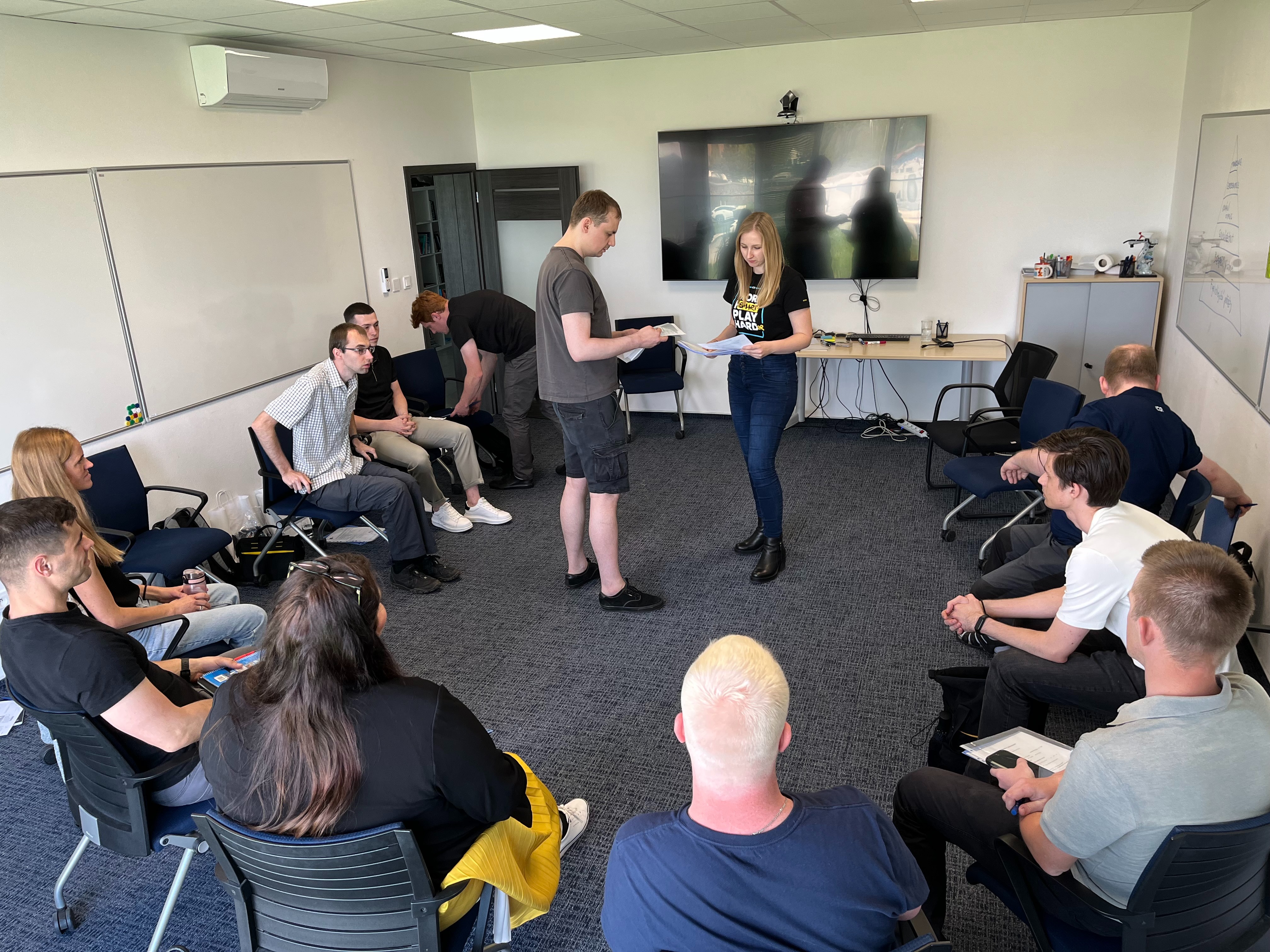
When I’m preparing onboarding, I often remember my own first day at ICE. What it was like to step into a room full of strangers. How quickly you sense whether you belong or not. For me, I felt at home straight away — as if I’d been here for years.
Today I’m on the other side. From the moment new start dates are confirmed, I’m planning calendars and building the schedule so everything fits together. Sure, sometimes things change on the fly, but that’s part of the process. Maybe we’ll get into that a bit more later.
They’re welcomed by the Navigators, who introduce them to ICE culture and values — through real-life situations, tasks, and their first small challenges. We want new joiners to understand from day one how things work here. Interaction is absolutely key. People who just sit silently don’t last long here.
And when they leave at the end of the day with their first company T-shirt, it’s not just another giveaway. It has meaning — it’s a sign that they are now part of the team.
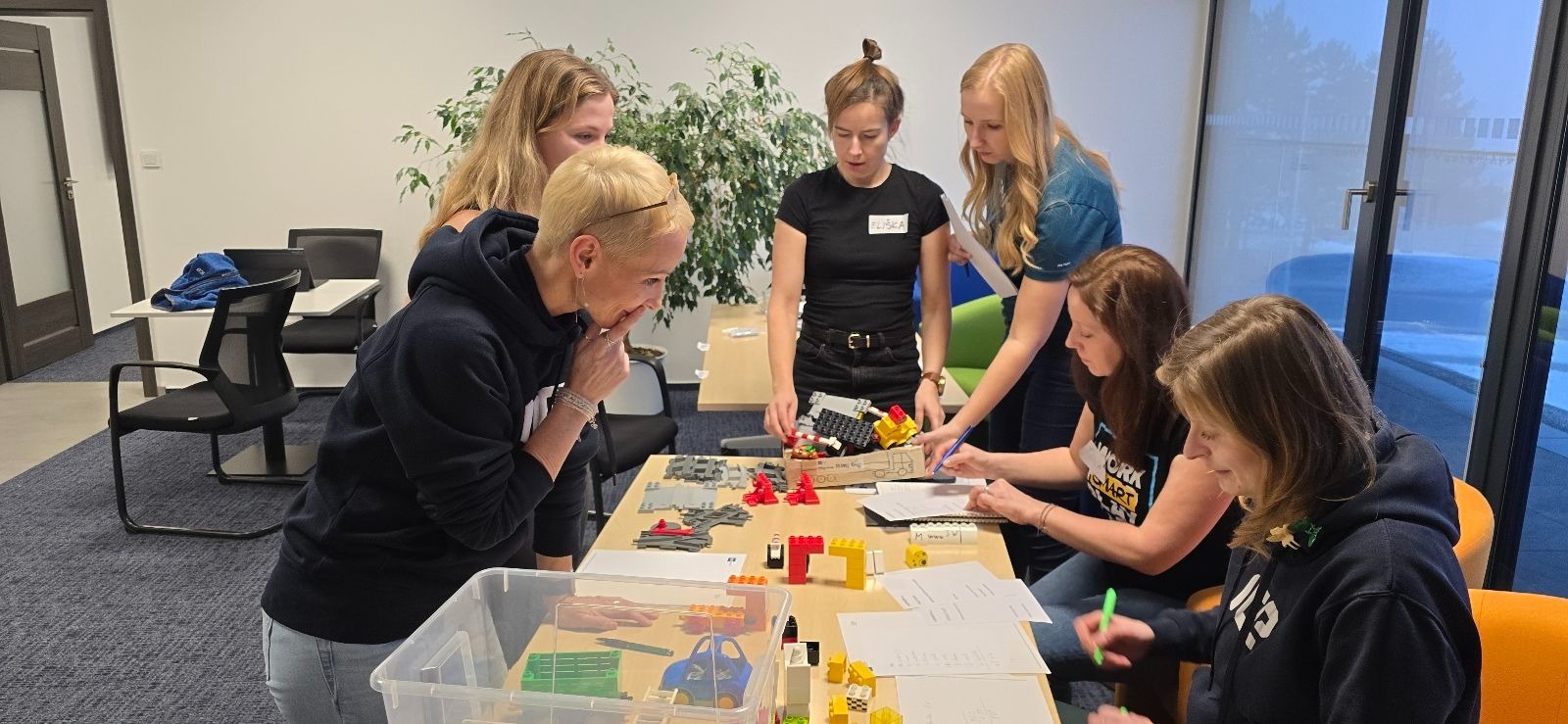
It’s not just about “planning” something. Every day has a purpose, every activity has its place. I make sure everything connects smoothly, handle communication with trainers and newcomers, and don’t forget details like the welcome pack or the first-day lunch. (smiles)
I should also mention that our onboarding isn’t a full-service, hand-holding program — nor is it meant to be. Even though I’m right next door in the office, the aim is not to guide people by the hand. Self-management is in our DNA, and we support that from day one. Everything is clearly laid out in the calendar, and updates are shown in real time. It’s up to the newcomer to keep track and adapt, just like they’ll need to do later in their projects.
The LEGO and the Workspace Game. These two activities reveal more than a thousand words — who can collaborate, who can think critically, who can pick themselves up when something fails. Or, on the other hand, who tries to manipulate, who doesn’t play as part of the team. Differences in people’s values come through in these “games” very clearly.
And then there are moments when, for example, a newcomer from finance tries installing a control cabinet for the first time. It has nothing to do with their normal job, but suddenly they see what the guys in the field are actually doing. They start to understand how all the pieces fit together. I’ve tried it a couple of times myself, and it’s a great experience — I really enjoy it and hope I get another chance to assemble something again. (laughs)
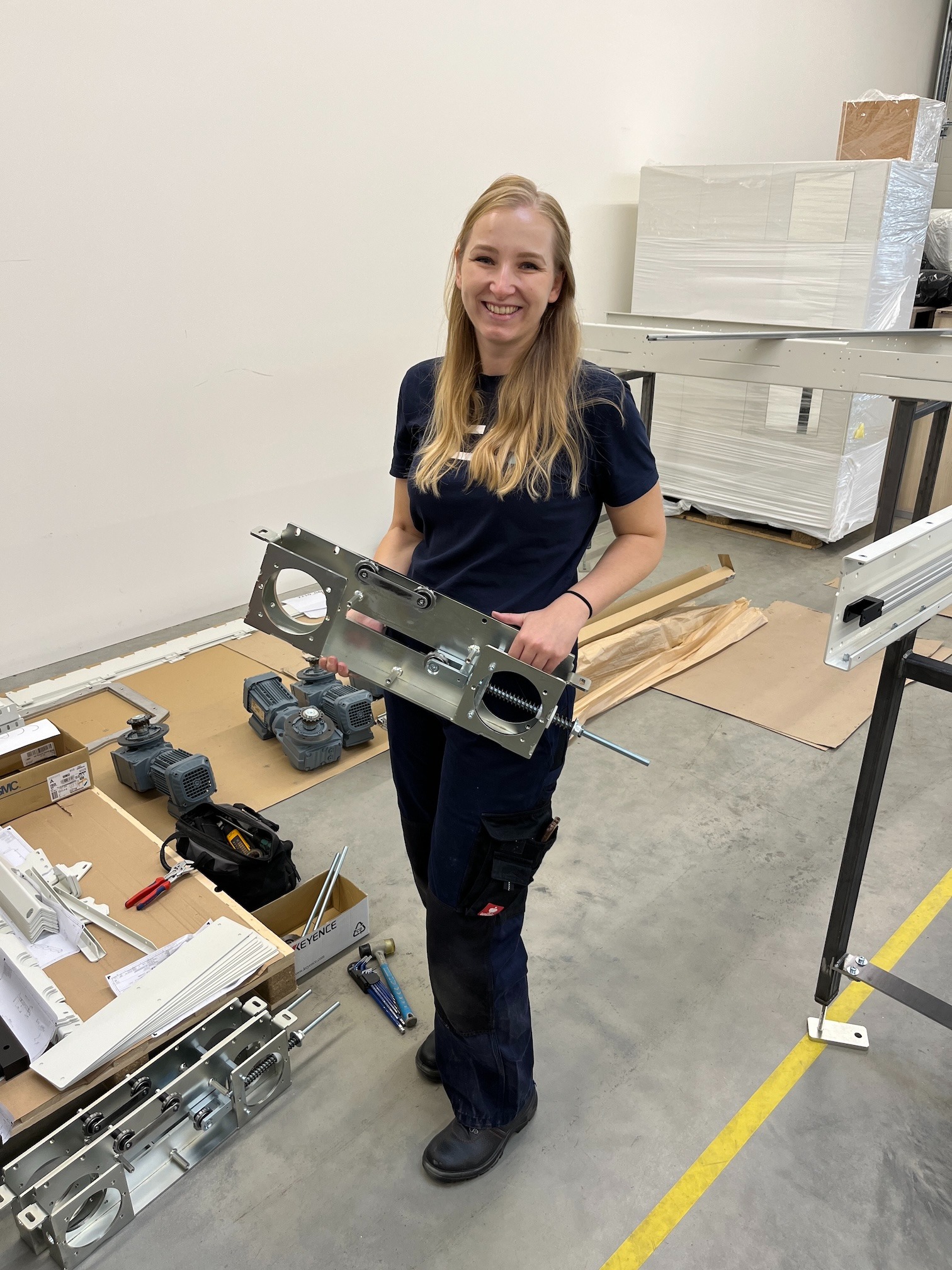
I’m constantly in touch with Terka from recruitment. We plan start dates so new joiners match the onboarding cycle.
Navigators are involved right from the beginning and guide newcomers through about half of their first days. Even during onboarding, they collect feedback from us to understand what the newcomer needs and what to follow up on. After about six weeks, they sit down together for their first one-on-one, which then continues with regular meetings. But the upcoming article with one of our Navigators will tell you more about that.
Flexibility. You can have a plan mapped out to the last detail, and something will still turn it upside down. A team change, a trainer getting sick, a new hire needing to see a doctor. Blocks get shifted, rooms change, operational things have to be adjusted on the fly.
But that’s exactly the strength of ICE. We can react quickly and without unnecessary drama. And that’s the same skill we want to pass on to new people from day one.
It’s all about mindset, so I see changes in the schedule as an opportunity to improve — now and for the future.
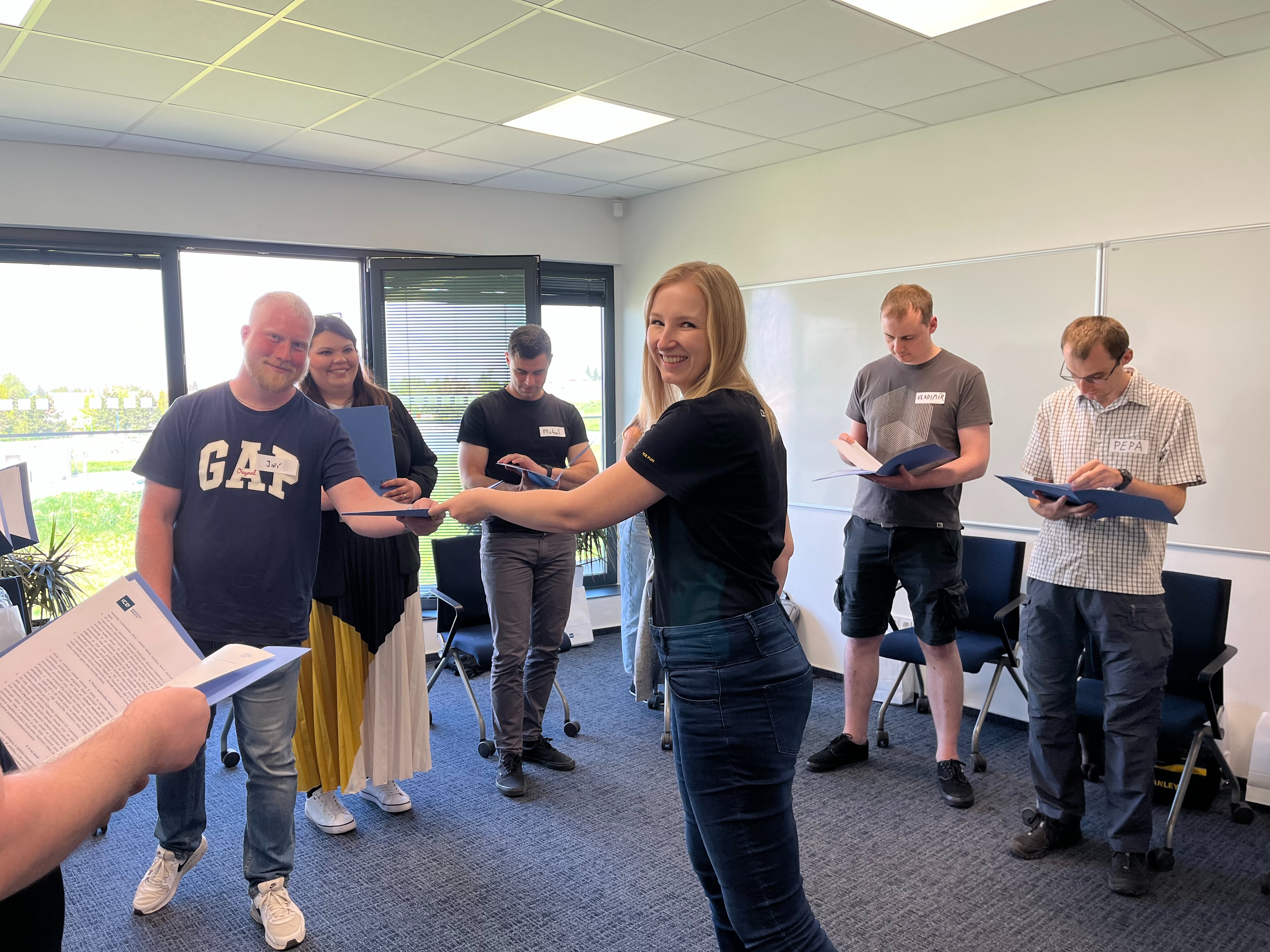
When new joiners leave exhausted, but excited. When they say they’ve never experienced anything like it anywhere else. And honestly, also when onboarding is successfully wrapped up. (laughs)
Besides onboarding, I look after everything to do with people at ICE — from their arrival, through contracts, changes, training, all the way to their departure. I make sure everything is in line with our rules while still making sense in practice. I enjoy finding ways to simplify routine tasks — for example through automation and process improvements that save time and free up people to focus on more important things.
I love when things click together. My job might be more in the background, but without it, a lot of things simply wouldn’t work. Someone might say I just deal with paperwork and administration, but for me, it’s crucial because it lets others focus fully on their work — without worrying about what needs to be arranged and when.
That’s the meaning I see in it — being a reliable support so others can have their hands and minds free to focus on what really matters.
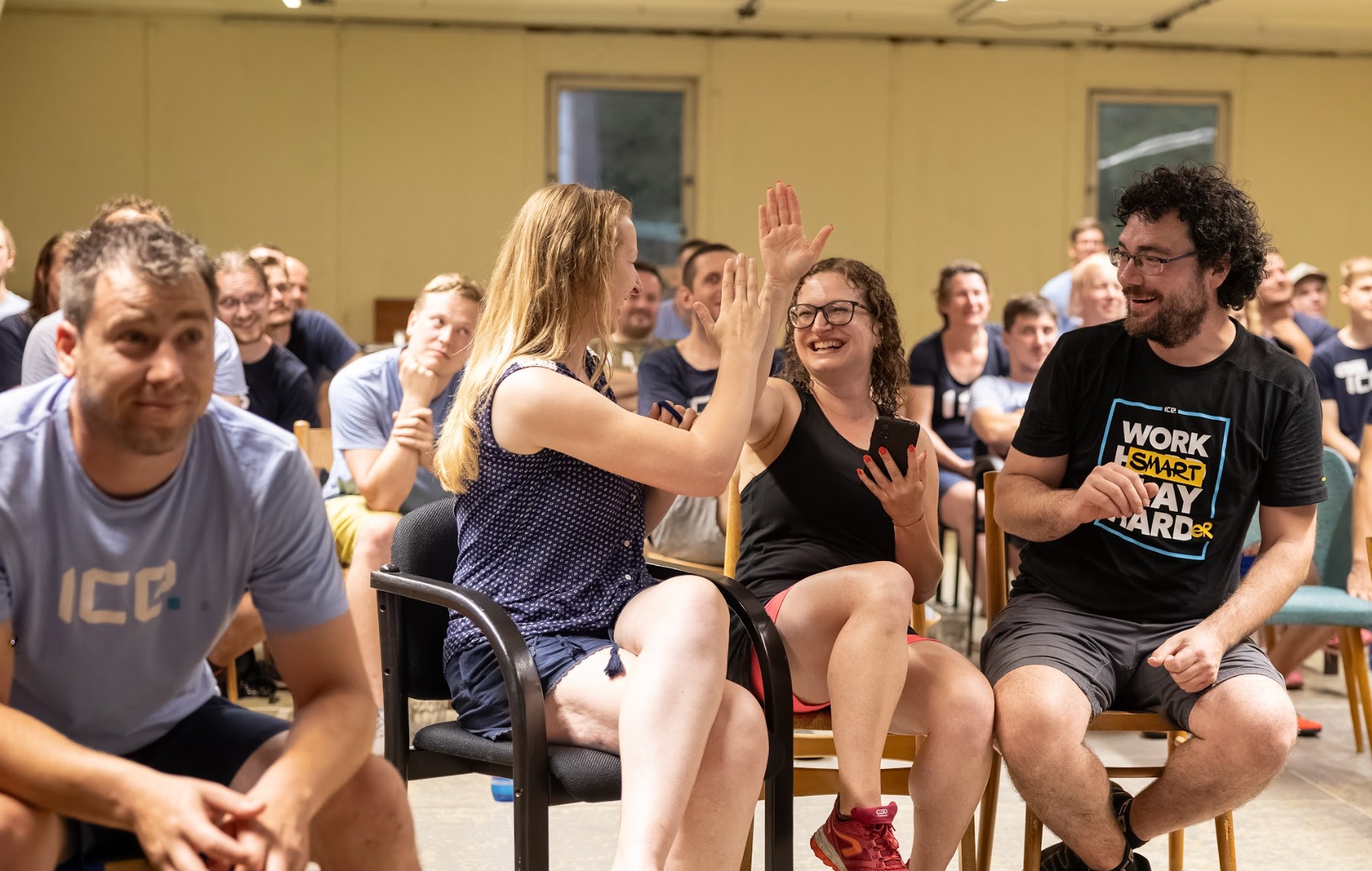
That no one here just sits and waits things out. If something doesn’t work, we fix it. If something can be done better, we try. Everyone knows what to do — even without someone breathing down their neck. And if they’re stuck, they’re not afraid to speak up.
There’s drive, responsibility, and humility in that. And that’s exactly what motivates me.
"I’ve been working with Jaruška on the team for three years now, and I still really enjoy it. Not just because she keeps the atmosphere in the office pleasant from early in the morning and makes sure we have a steady chocolate supply (laughs). Whenever we need to solve something, she tries to find the best and most efficient solution, she’s 100% reliable, and she’s the kind of person who will always advise and help whenever she can."